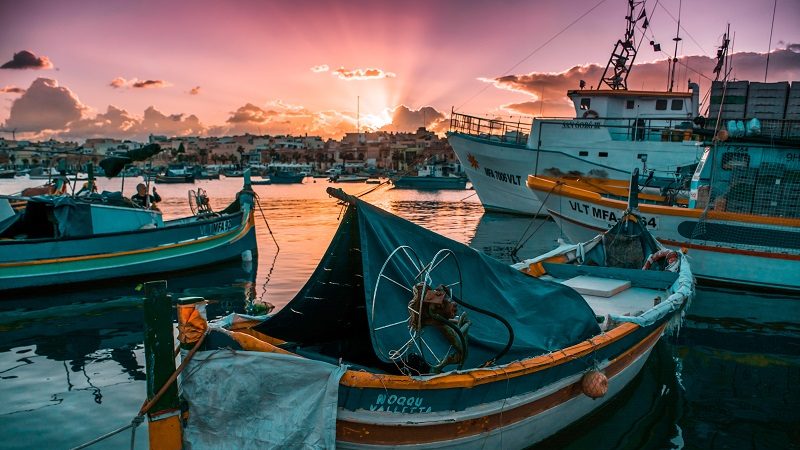The “neoliberal rationalisation” of the Maltese fishing fleet and lack of holistic marine governance has created a battle for the commons while catalysing the demise of traditional small-scale fisheries systems, according to a study.
The report examined how the development of the post-EU national policy portfolio destabilised long-existing functional fishing governance mechanisms and “now pose a direct challenge to the sustainable management of the marine socio-ecological system”.
Malta has a small-scale fishing fleet of 935 small-scale vessels, representing over 93% of the fleet. Between 2000 and 2010, the small-scale fishing fleet decreased by 30% – one of the highest in the EU.
The changes came about upon EU accession when these were transposed into national law. One of the core obligations was to “achieve a stable and enduring balance of fishing capacity with fishing opportunities”.
The Maltese government ratified this obligation and capped the fishing fleet by not issuing new commercial licenses unless they replaced older licenses with the same kilowatt and tonnage.
There was also a process of fleet restructuring to promote the replacement of “inactive” and “low-income-nature” vessels with “economically efficient” vessels to make it more competitive within the EU single market.
This, however, meant making space for large-scale vessels and distributing “trawling and permits to a handful of powerful and politically-connected individuals”. In fact between 2005 and 2013, the number of registered trawlers in the commercial segment increased by 69%.
The fishermen pointed out there was nepotism in the way the licences were issued or promised before an election.
Small scale fishermen were finding it difficult to get hold of a commercial licence due to the high market value but used a loophole where they registered as a recreational fisherman with the Malta Fishing Association to “possibly gain a commercial fishing permit from the government when, or if, fleet capacity becomes available”.
The register became, “to a certain extent, a de facto gateway to the commercial small-scale sector”. However, the fishermen did point out that there was nepotism in the way the licences were issued or promised before an election, for example.
The recreational sector kept growing and has become larger than the small-scale. Despite being referred to as a “recreational” sector, this category was actually set up to “push out” more than 1,000 artisanal vessels from the “commercial” register into a “non-commercial one,” and to accommodate potential entrants to becoming incognito commercial fishers and not actually to develop leisure-pursuit fishing.
The key policy regulation driving this transformation was allowing them to retain most of their fishing rights using artisanal fishing gear, which is not controlled by the Mediterranean regulation, the report said.
Although not officially allowed to sell their catch, this “loophole” has attracted both artisanal fishermen, who could sell their commercial license to newcomers, predominantly large-scale investors, and also entirely new fishermen to join the recreational segment.
Even though the sale of recreational catches is banned by EU law, the report highlighted how the illegal sale of fish would take place through divers, ex-professional fishermen and new recreational fishers Species include Red snapper, grouper, Dentex, scorpion fish, John Dory, and amberjack – all sold in local fish markets while also being served as the local catch in typical Maltese restaurants.
There is little or no enforcement in place, and the discrete sale of black fish ‘is somehow permitted by the authorities despite the financial hardship imposed on their artisanal counterparts’
Small-scale fishers are angry as this negatively affects their income and, during the low tourist season, they cannot sell all of their own catch.
The report pointed out that there is little or no enforcement in place and the discrete sale of black fish “is somehow permitted by the authorities despite the financial hardship imposed on their artisanal counterparts”, who are already having difficulties due to the privatization of the Bluefin tuna fishery and restrictions on the swordfish season.
By turning a blind eye to these local problems and overtly “ignoring” the public pleas made by the small-scale fishermen for a more realistic management scheme, the unsustainable management of the marine commons is likely to persist, “creating a bleak future for small-scale and recreational fisheries segments alike,” it said.
The research paper -‘ The Contested Commons: The Failure of EU Fisheries Policy and Governance in the Mediterranean and the Crisis Enveloping the Small-Scale Fisheries of Malta – was written by Alicia Said, Joseph Tzanopoulos and Douglas MacMillan.












